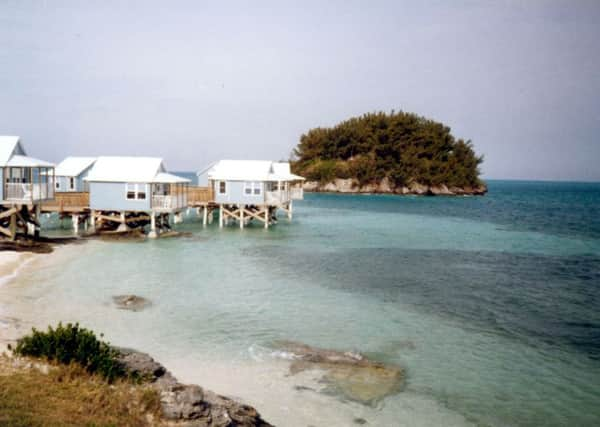Ilona Amos: Bermuda study will help us understand more about oceans


This is because I was invited to join a ground-breaking research mission to explore some of the most important but least-known parts of our planet – the deep sea.
Experts agree that global oceans are experiencing the most extreme disruption in at least 250 million years, and it’s all our fault. The effects of climate change, pollution and over-fishing are wreaking havoc on Earth’s largest – and critically important – ecosystem.
Advertisement
Hide AdAdvertisement
Hide AdEvidence of warming, de-oxygenation and acidification have already prompted warnings that humans are driving the world to its third mass extinction event. Seas have become around 30 per cent more acidic since the start of the Industrial Revolution, corals reefs are being killed off and the occurrence of oxygen-starved dead zones has doubled in frequency every decade since the 1960s.
At the same time much of the world’s fish stocks are still being unsustainably plundered, meaning a number of species could face extinction by the end of the century. Meanwhile, a rising tide of marine litter is harming this vital habitat, which acts as a massive sink for climate-warming greenhouse gases.
Scientists from a dozen academic institutes, including Heriot-Watt University, have now been brought together by new scientific research charity Nekton to participate in surveys across three locations: Bermuda, Nova Scotia and the Sargasso Sea. They intend to assess the state of the deep ocean, its function, health and resilience.
Information gathered during the mission, including about 1,500 hours of film footage, will be used to create baseline data for future research. It is hoped the findings will provide a greater understanding of the role oceans play in the planet’s life-support system.
Among other things, they will analyse temperature change at depth, the interaction of species and how carbon dioxide is sequestrated.
The scientists also hope to discover new species, possibly even new life forms, which could lead to effective treatments for currently incurable illnesses. Chemicals and biological materials from marine organisms are already used to make drugs to fight cancer, TB, HIV and malaria. Who knows what other potentially useful life could be lurking down there?
The seas around the Bermuda archipelago were the location for the first ever manned deep-ocean exploration, which took place in the 1930s, and so provides a unique opportunity for historical comparison. The difference is the latest expedition will use cutting-edge technology, including futuristic manned submersibles with see-through spherical hulls.
The craft have been specially designed to withstand the enormous pressure involved in diving down to 300m while allowing the crew an unprecedented view of life in what is known as the twilight zone. Unmanned, remotely operated vehicles will go even deeper, down to 2,000m, where the pressure would apparently feel similar to having 50 jumbo jets bearing down on you.
Advertisement
Hide AdAdvertisement
Hide AdIf I had been better at busking and had managed to scrape together the air fare, I would today have been climbing inside one of these bubble subs with some of the world’s leading ocean experts. I can only console myself with the thought that it’s unlikely my absence will affect the mission’s outcome – unless ooohs and aaahs are more useful than they sound.